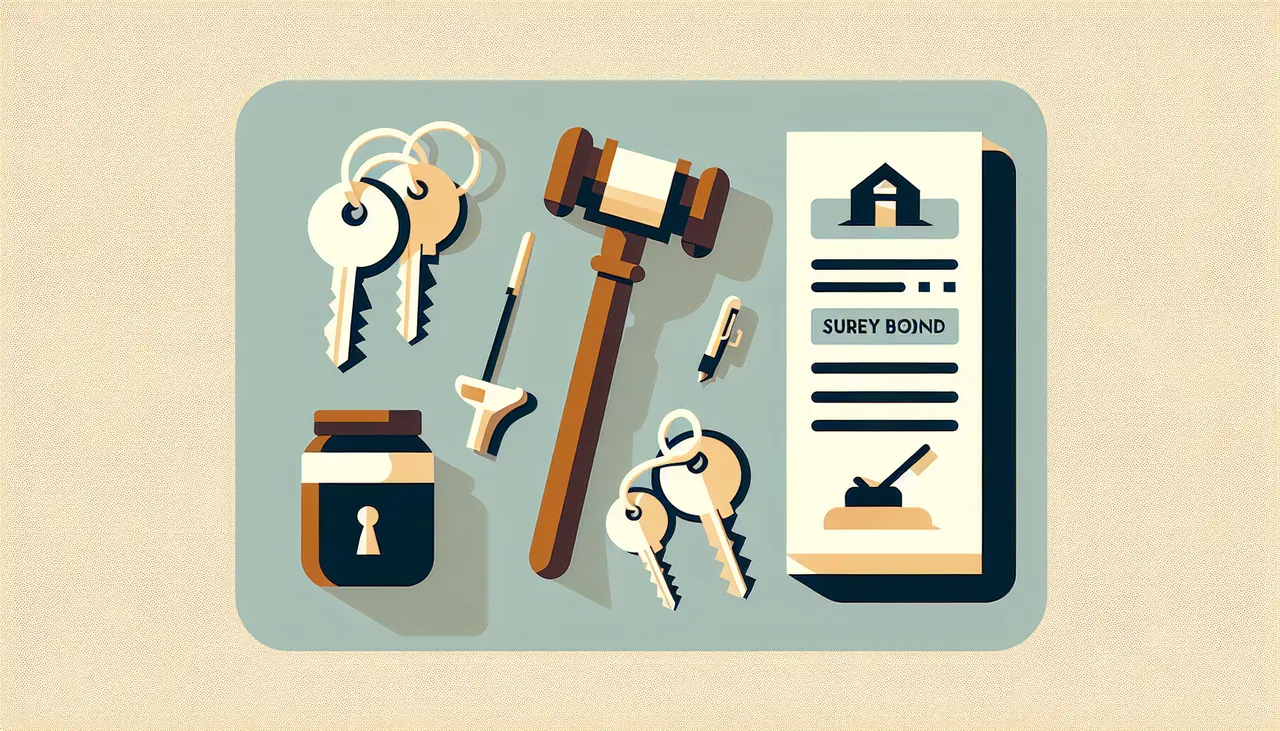How Surety Bonds for Jail Work: A Simple Guide
Navigating the world of surety bonds can be confusing, especially when it comes to jail-related matters. This guide is here to make it simple. We'll break down what surety bonds for jail are, how they work, and why they might be needed.
What is a Surety Bond for Jail?
A surety bond for jail, commonly known as a bail bond, is essentially an agreement between the court, the defendant, and a bail bondsman. It serves as a financial guarantee that the defendant will appear in court as required after being released from custody. Essentially, this type of bond functions as a contract where the three parties agree on the terms of the defendant's release. While the concept might seem straightforward, there are nuances to each role involved that make each situation unique. It's important to understand these roles to see the full picture of how bail bonds operate in the legal system.
Surety bonds for jail can often be misunderstood. At its core, a bail bond is designed to ensure that the defendant adheres to the court's schedule without imposing the financial burden of the full bail amount upfront. This method provides defendants with the flexibility to manage their personal or professional commitments while awaiting their court date, thus preventing extended detentions due to monetary constraints. Throughout the legal proceedings, bonds act as a protective measure against potential flight, ensuring that legal processes aren't compromised while also not punishing individuals unnecessarily by impeding their freedom.
How Does a Surety Bond Work?
When someone is arrested, the court sets a bail amount that acts as a security deposit to ensure the defendant returns for their court date. If the defendant or their family cannot afford to pay the bail in full, they can seek the assistance of a bail bondsman. The bondsman provides a surety bond to the court for a fee, which is usually a percentage of the total bail amount. Beyond the immediate financial aspects, surety bonds serve a deeper function in the justice system. They maintain the delicate balance between individual rights and public safety by providing both flexibility in terms of personal movement and assurance of court compliance.
To further elaborate, once the bail amount is set, a defendant who lacks the financial means can turn to a bail bond service. The bail bondsman typically requires collateral alongside the non-refundable fee to mitigate the financial risk they're undertaking. This collateral can range from personal belongings to property. Should the defendant fail to appear in court, the bondsman retains the right to claim the collateral or any other recovery measures necessary to recoup the risked funds. This intricate interplay of trust, financial assurance, and legal adherence encapsulates the essence of surety bonds in the jail context, translating a straightforward concept into a nuanced safety net for judicial processes.
The Role of the Bail Bondsman
A bail bondsman plays an integral role in the process. They are licensed professionals who can issue the surety bond to the court. In exchange for their services, they charge a non-refundable fee. The bondsman also takes on the responsibility and risk of ensuring the defendant returns to court. If the defendant fails to appear, the bondsman might be required to pay the full bail amount. It’s a role defined by both fiscal and moral responsibility, demanding an intense level of trust and reliability from the bondsmen.
Moreover, these professionals often go beyond merely providing a financial service. They engage in assessing the likelihood of a defendant's compliance with court orders, often relying on their experience and instinct to forecast potential behaviors. In instances where a defendant seems unlikely to comply, a bondsman might implement additional terms as part of the agreement to ensure adherence to legal commitments. These interactions mean bail bondsmen need not only financial acumen but also a deep understanding of human behavior to effectively operate within the legal ecosystem, thereby fostering a well-rounded judicial process.
Additionally, the presence of a bail bondsman opens up equitable access to legal procedures. Individuals from varying financial backgrounds can navigate the justice system on more even footing, free from the prohibitive costs associated with full bail payments. This democratization of access ensures justice remains balanced, rooted in fairness rather than financial capability, which is vital for maintaining public trust in legal institutions.
Why Surety Bonds are Essential
Surety bonds help to balance the need for legal accountability with personal freedom, allowing defendants to continue with their lives while awaiting court proceedings. They are crucial in the legal system for making sure defendants fulfill their obligations, while also preventing prolonged jail stays due to financial constraints. Such bonds essentially uphold the principle that individuals are innocent until proven guilty, reinforcing the notion that financial hindrances shouldn't preclude anyone from enjoying their legal rights.
By providing a structured yet flexible method for temporary release, surety bonds foster an environment where individuals can maintain their societal roles—whether as family members, employees, or community members—without the stigma or disruption caused by extended prison time. This, in turn, aids in preserving community stability and personal dignity. Furthermore, they ensure that the legal system doesn't rob individuals of agency due to economic incapacity, underpinning the core principle of equal justice.
Wrapping Up: The Importance of Surety Bonds in the Legal System
Surety bonds for jail are essential tools in the legal system, offering a balance between ensuring defendants return for their court dates and providing a means for temporary release from custody. Understanding these bonds can empower you if you or a loved one ever need to navigate the legal process. We hope this guide has made the concept less daunting and clearer for you.

